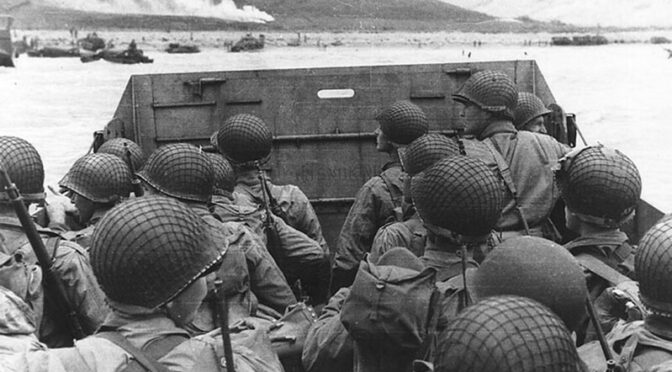Article published in The Daily Mail, 6 June 2025. © Richard Kemp
Imagine yourself storming the beaches of Normandy into the teeth of enemy fire. Around 62,000 British men did exactly that on 6th June 1944. Many were mere youths, the youngest, Jack Banks of the Durham Light Infantry, just 16. Like others in that war he’d falsified his age to sign up, which tells you a great deal about a generation that willingly took their lives into their hands to fight for family, friends and country.
Returning to our visualisation, before the invasion you were crammed onto the decks and holds of your ship for days, waiting for the weather to break. Even when it became calm enough, the crossing still made you violently sick, bucking through heavy waves for hours on end. The landing craft hit the beach, you ran down the ramp with your stomach churning, jumping off to wade through the lashing waves: cold, tired, terrified and weighed down by helmet, rifle, bullets and grenades. Then you were on the mine-infested beach, charging into a wall of machine gun fire, some of your friends left and right ripped apart by enemy bullets.
That is what we asked of our young men on that day of hell, and the way they rose to the challenge can’t fail to fill our hearts with pride even 81 years later.
D-Day was and remains the largest amphibious landing in the history of warfare. It was a critical turning point, leading to the liberation of Europe from the Nazi savages. But back then the success of the D-Day landings was far from certain, like everything in war. The Supreme Commander, American General Dwight D Eisenhower, wrote a speech on 5th June which he would read if it failed, taking the blame fully onto his own shoulders.
That D-Day and the invasion of Europe did not fail was due to a miracle of intensive planning and vigorous command. The landings included over 5,000 ships, 11,000 planes, and more than 160,000 ground troops. That supreme effort and the months of fighting that followed could not have succeeded without extraordinary cooperation across the whole of society and across Allied nations.
But above all it was due to the courage, fortitude and sacrifice of thousands of men from Britain, America, Canada and many other nations, to whom we all owe our liberty and way of life today.

